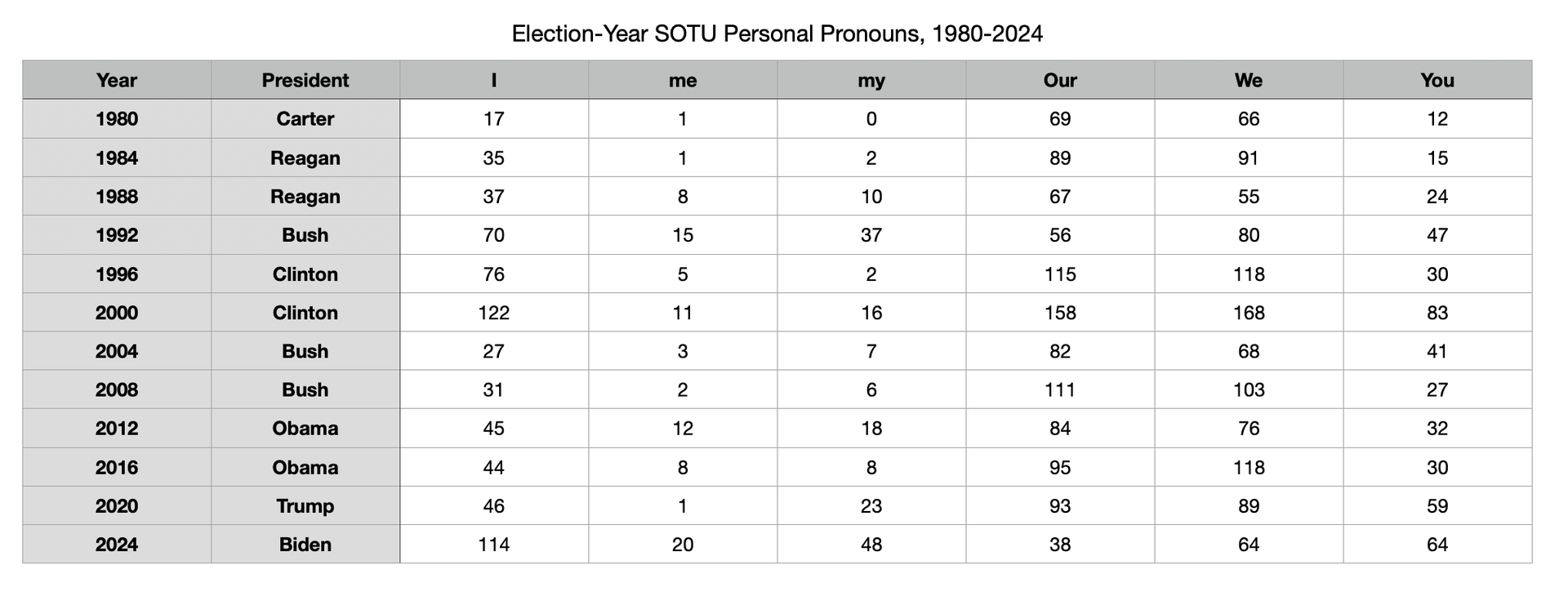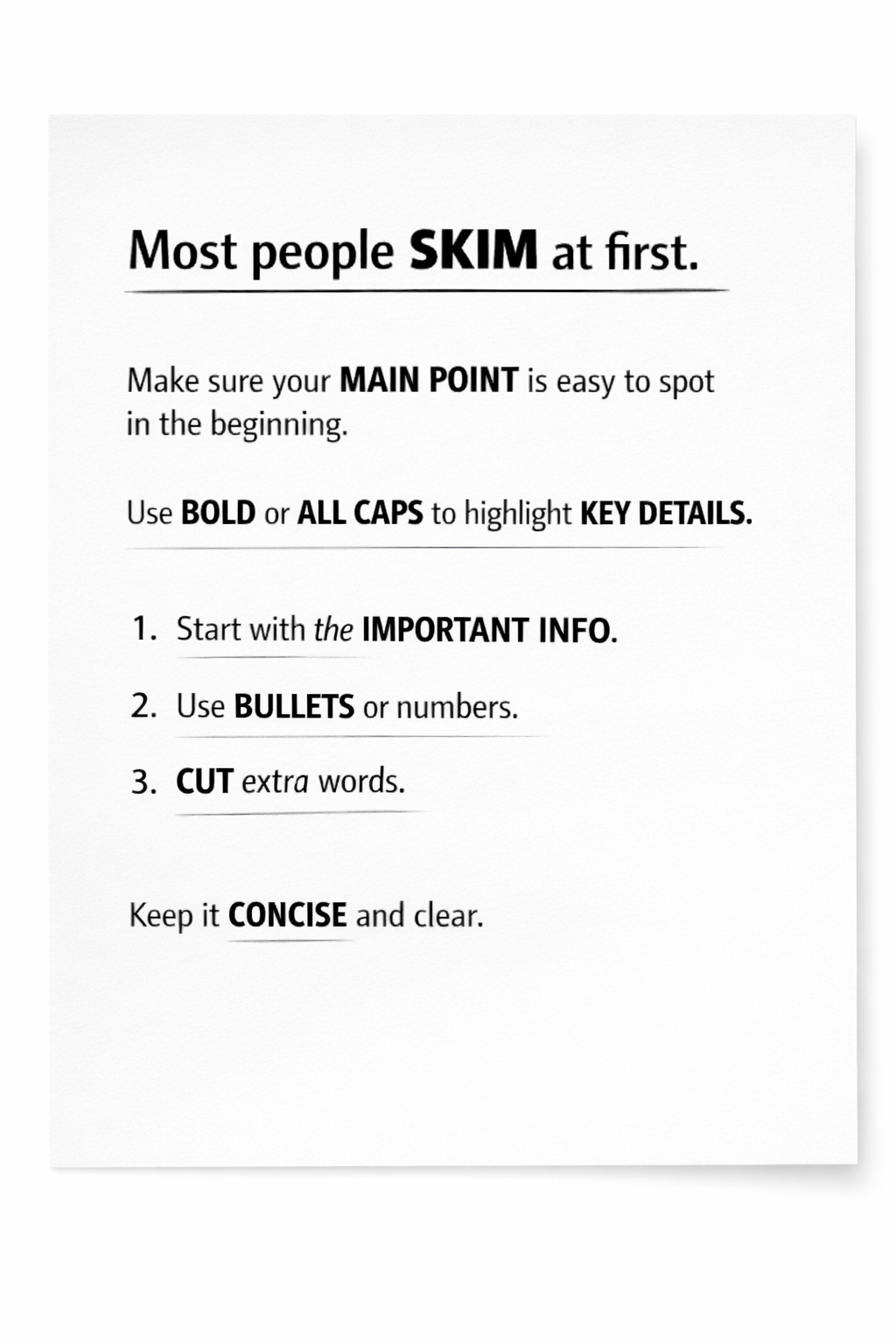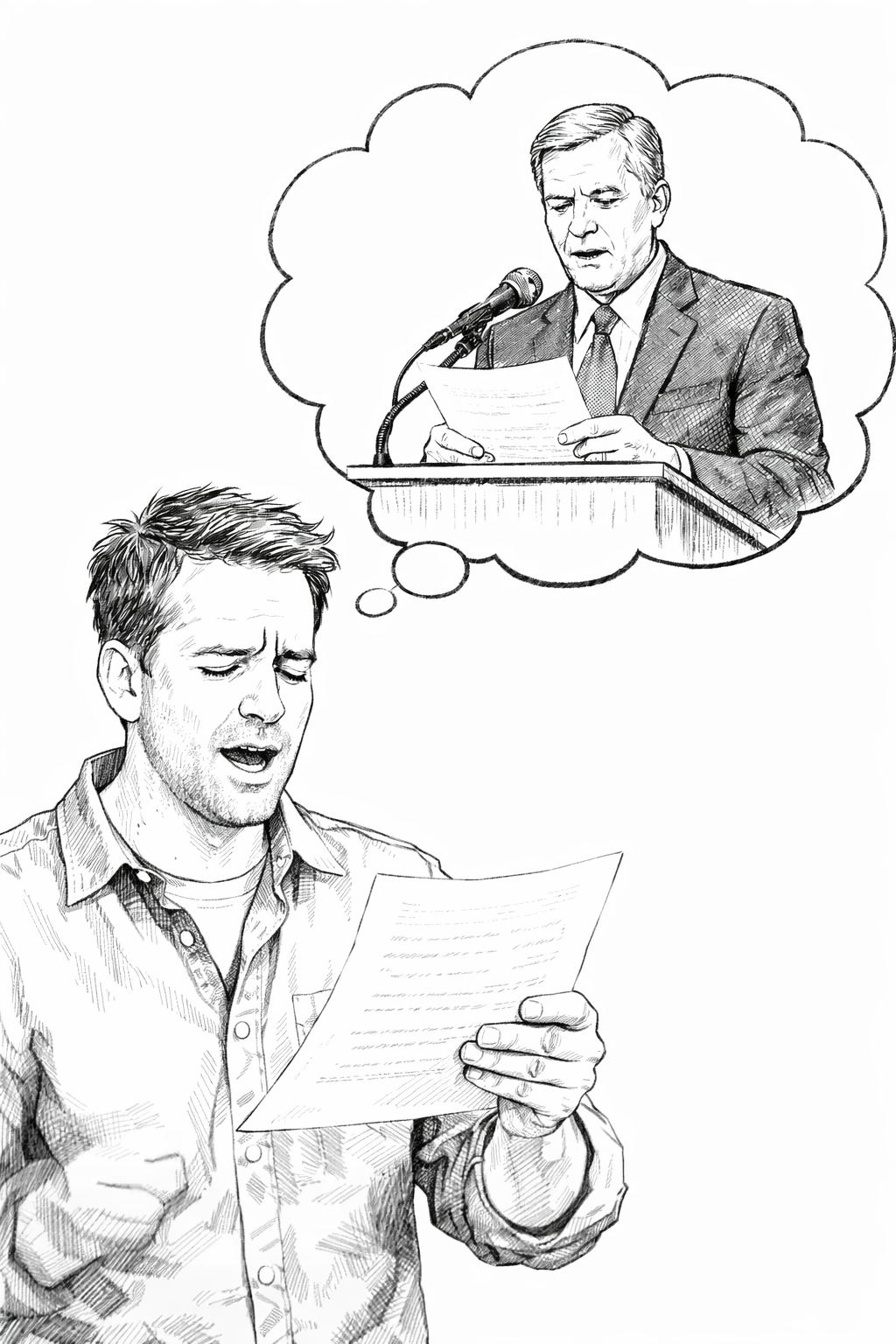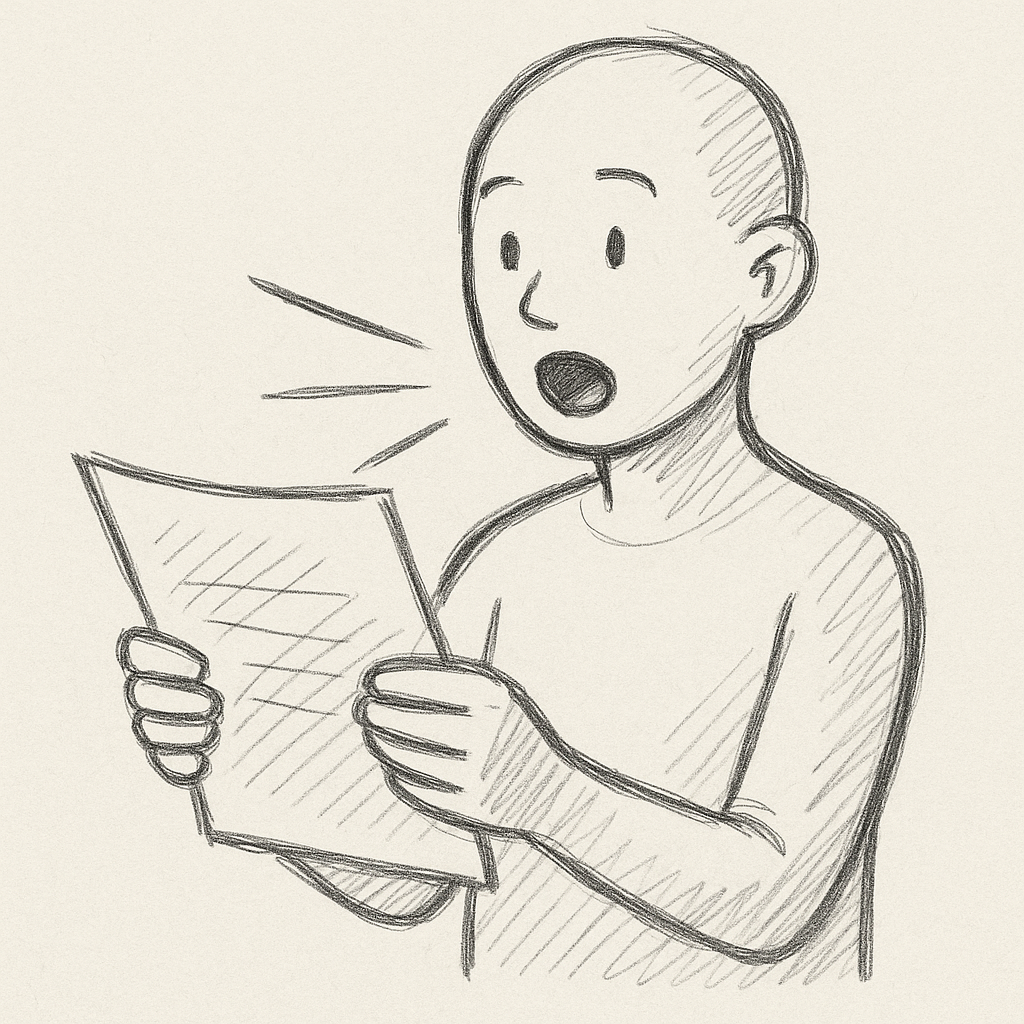Nib #12: Biden’s Botched SOTU, Part 2: Personal Pronoun Problems
As a rule, “Write like you talk” is good advice. Spoken language is human beings’ native tongue. (That’s why writing is so hard: see Nib #3 here.)
One of the few caveats to this rule pertains to personal pronouns. Americans today say I, we, us, you, your, our, and my so frequently and so casually that young writers are stunned by how powerfully those words can come across on the page.
It is apparently a lesson President Biden’s speechwriters are still learning, too.
Last week, we explored the unhelpfully aggressive tone of Biden’s 2024 State of the Union Address and how it undermined what could have been an effective speech.
But there was another glaring unforced error in the text: its misuse and abuse of personal pronouns.
This week, I roughly charted every election-year State of the Union’s use of personal pronouns going back to Jimmy Carter’s in 1980. (See chart below.) It’s a small sample size and imperfect metric, of course. But even so, Biden’s speech stands out.

Biden’s speech used the word “I” 114 times, more than any other election-year SOTU except Bill Clinton’s self-congratulatory swan-song in 2000 (122 times) — and not by a little. He referred to himself more than twice as often as Donald Trump in 2020 (46 I's), Barack Obama in 2016 (44 I's) or 2012 (45 I's), or George W. Bush in 2008 (31 I's) or 2004 (27 I's).
His SOTU used the words “me” (20 times) and “my” (48 times) more than any other’s. He also said “you” — probably the most subtly aggressive, accusatory word in written English — 64 times, more than any other except, again, Clinton in 2000 (83 times).
Moreover, Biden’s use of the more inclusive, first-person plural pronouns “our” (38 times) and “we” (64 times) ranked dead last and next-to-last of the 12 speeches.
Just like last week’s Nib, this is not a critique of Biden’s growling delivery of the SOTU, or the policies it advocated. Strictly as a matter of persuasive writing, 114 I’s cannot but undermine a speech supposedly about the future of the country and fighting for the little guy.
Sixty-four “you’s” from an unpopular president ostensibly trying to unify the country has the same problem. This speech should have been all “us” and “we” and “our.”
In 2024, Joe Biden isn’t just running against Donald Trump and the Republicans. He is running against the perception that his party and administration are elitist, out of touch, and look down on everyday Americans.
His State of the Union should have helped change that perception. Instead, Biden’s personal pronoun problem exacerbated it.
The lesson for young speechwriters? Whenever possible, make the first person plural and the second person gracious.
Until next week… keep writing!











